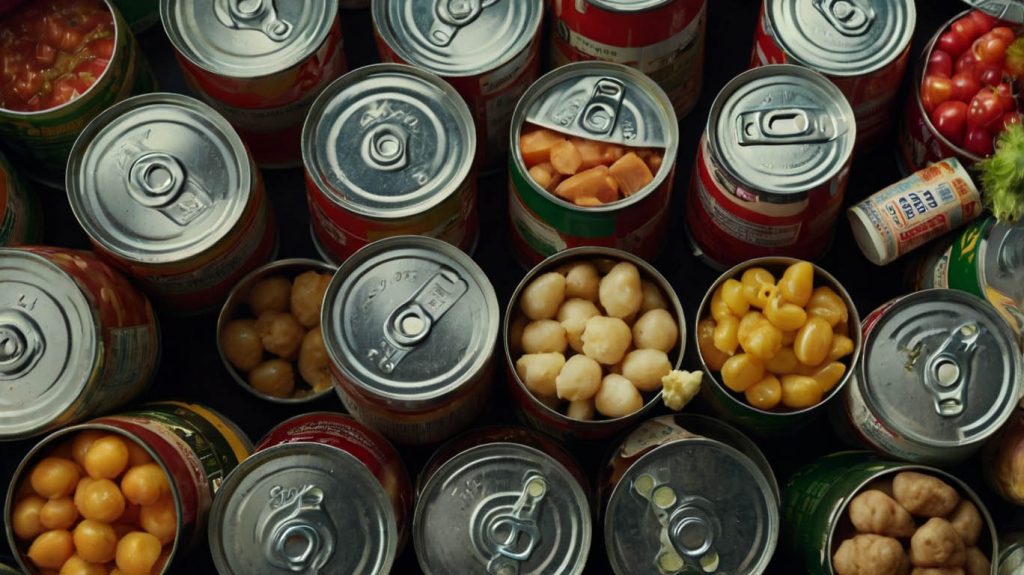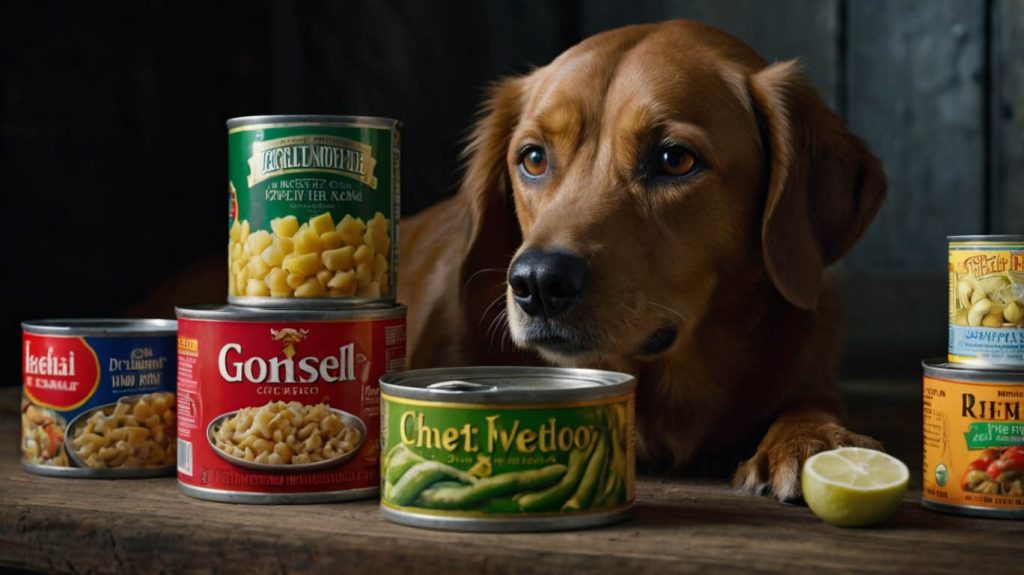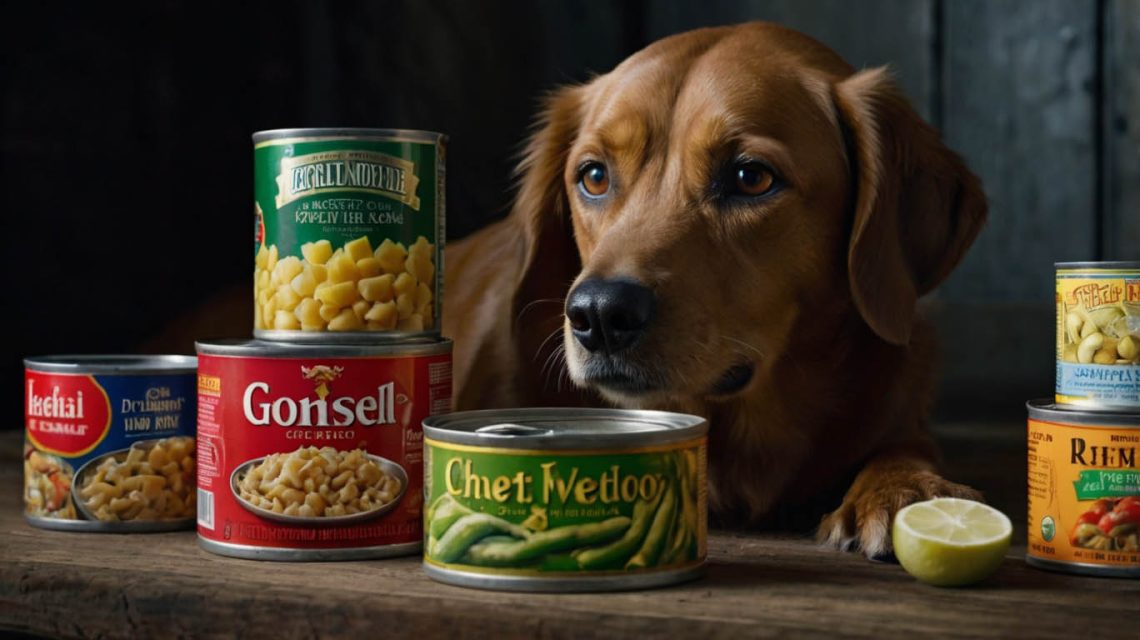What Canned Vegetables Can Dogs Eat: The Ultimate Guide to Safe Snacking
It was a busy Tuesday evening, and Tom was making dinner. His adorable but slightly pudgy Beagle, Cooper, sat by his feet, giving him the “sad puppy eyes.” Tom knew Cooper’s high-calorie biscuits were contributing to his weight gain and wanted to find a healthier treat. He opened his pantry and saw rows of canned vegetables. The convenience was undeniable, but a wave of uncertainty stopped him. He found himself pausing, can in hand, asking the question many pet owners face: what canned vegetables can dogs eat?
This question is both common and critical. We want to share healthy, natural foods with our pets, and canned vegetables offer a quick and easy way to do that. However, the canned food aisle can be a minefield of hidden dangers for our canine companions, with high sodium levels and unsafe ingredients lurking in seemingly innocent products.
Consequently, this definitive guide is here to be your trusted resource. We will explore the pros and cons of canned veggies, provide a clear, vet-reviewed list of safe choices, and detail the non-negotiable rules you must follow when reading the label. Therefore, you can confidently answer the question, “what canned vegetables can dogs eat?” and offer your pet a safe, healthy, and convenient treat.
The Golden Rule: What to Look for in Any Canned Vegetable for Your Dog
Before we list specific vegetables, there is one paramount rule that applies to every single can you consider. You must choose products with NO ADDED SALT.
A dog’s daily sodium requirement is very low. The high sodium content found in most standard canned vegetables is dangerous for them and can lead to salt poisoning (hypernatremia), which can cause vomiting, diarrhea, tremors, and even seizures.
Always look for labels that explicitly state “No Salt Added,” “Low Sodium,” or are packed only in water. This is the single most important factor when determining what canned vegetables can dogs eat.

The Vet-Approved List: What Canned Vegetables Are Good for Dogs?
Once you’ve committed to the “no salt added” rule, several excellent canned options can be a wonderful addition to your dog’s diet in moderation.
Canned Pumpkin: The Digestive Superstar Good for Dogs
Canned pumpkin is the undisputed champion when people ask, “what canned vegetables can dogs eat?”
- Why it’s great: 100% pure canned pumpkin (NOT pumpkin pie filling, which contains sugar and spices) is a fantastic source of soluble fiber. This makes it a miracle worker for digestive issues. It can help firm up loose stools during bouts of diarrhea and can also help with constipation by adding bulk.
- How to serve: A spoonful mixed into your dog’s regular food is a perfect, healthy supplement.
Canned Green Beans: The Low-Calorie Treat Good for Dogs
No-salt-added canned green beans are an excellent, low-calorie treat, especially for dogs on a weight management plan.
- Why it’s great: They are packed with fiber, which helps your dog feel full without adding extra calories. They also contain essential vitamins like K and C. Their soft texture makes them easy for senior dogs to eat.
- How to serve: You can offer them straight from the can (after rinsing) as a treat or mix them with their kibble to add volume to their meal.
Canned Carrots: A Vitamin-Rich Choice Good for Dogs
Canned carrots are another fantastic and convenient option, as long as they are packed in water with no added salt or sugar.
- Why it’s great: They are a great source of beta-carotene, which the body converts to Vitamin A, supporting vision, skin, and immune health. The canning process also makes them soft and easy to digest.
- How to serve: Rinse them to remove any excess sodium from the canning liquid and offer them as a sweet, healthy snack.
Canned Sweet Potatoes: A Healthy Veggie Good for Dogs
Plain, canned sweet potatoes (often labeled as “yams”) can be a healthy treat in moderation.
- Why it’s great: They are a great source of dietary fiber and are packed with vitamins A, B6, and C.
- How to serve: Ensure the product is packed only in water, with no added sugars, syrups, or spices. A small spoonful is a delicious food topper.

The “Do Not Feed” List: What Canned Vegetables Are HARMFUL to Dogs?
This section is just as important. Never feed your dog the following canned vegetables.
Canned Onions and Garlic
This is an absolute no. Onions, garlic, and other members of the Allium family are toxic to dogs in all forms. They damage a dog’s red blood cells, which can lead to life-threatening anemia. Most seasoned canned goods contain onion or garlic powder, making them dangerous.
Canned Corn: A Controversial Choice
While corn itself is not toxic to dogs, canned corn offers very little nutritional value and can be difficult for some dogs to digest. Furthermore, it is often canned with salt and other preservatives. It’s generally best to avoid it.
Canned Tomatoes or Tomato Sauces
Canned tomatoes often have high acidity, which can cause stomach upset. More importantly, canned tomato products like sauces and soups almost always contain salt, sugar, and toxic ingredients like onions and garlic.
Any Canned Vegetable with Added Spices, Sauces, or Seasonings
This is a blanket rule. If the can contains anything other than the vegetable and water, it is not safe. This is the simplest way to determine what canned vegetables can dogs eat.
How to Safely Serve Canned Vegetables to Your Dog
Preparation is simple but crucial for safety.
- Read the Label Meticulously: Re-check for “no salt added” and scan the ingredient list for any hidden sugar, spices, or preservatives.
- Rinse, Rinse, Rinse: Even with no-salt-added products, it’s always a good idea to thoroughly rinse the vegetables in a colander under cool water. This removes any residual sodium or preservatives from the canning liquid.
- Serve in Moderation: Remember the 10% rule. Treats, including canned vegetables, should only make up a small portion of your dog’s daily diet. Their main nutrition should come from their balanced dog food.
A Case Study Resolved: How Tom and Cooper Found a Healthy Treat
Let’s return to Tom and his pudgy Beagle, Cooper. After his moment of hesitation, Tom put the standard can of green beans back. He did some quick research on his phone and learned the “no salt added” rule. On his next trip to the store, he specifically looked for and bought a can of no-salt-added green beans and a can of 100% pure pumpkin.
That evening, he rinsed a few green beans and offered them to Cooper, who gobbled them up happily. He started adding a spoonful of the pumpkin to Cooper’s breakfast. Over the next few months, by swapping high-calorie biscuits for these healthy, low-calorie canned veggies, Cooper trimmed down to a healthier weight. Tom felt great knowing he had found the perfect answer to “what canned vegetables can dogs eat” and was giving Cooper treats that were both delicious and genuinely good for him.
The Final Verdict: A Convenient and Healthy Option (with Rules)
So, what canned vegetables can dogs eat? A select few, like pumpkin, green beans, and carrots, can be a fantastic, convenient, and healthy addition to your dog’s diet. The key is to be a diligent label-reader, always choosing no-salt-added varieties packed in water and serving them in moderation.
Your dog’s health is in your hands. Always consult with your veterinarian before making significant changes to their diet. What are your dog’s favorite healthy treats from a can? Share your tips in the comments below!


